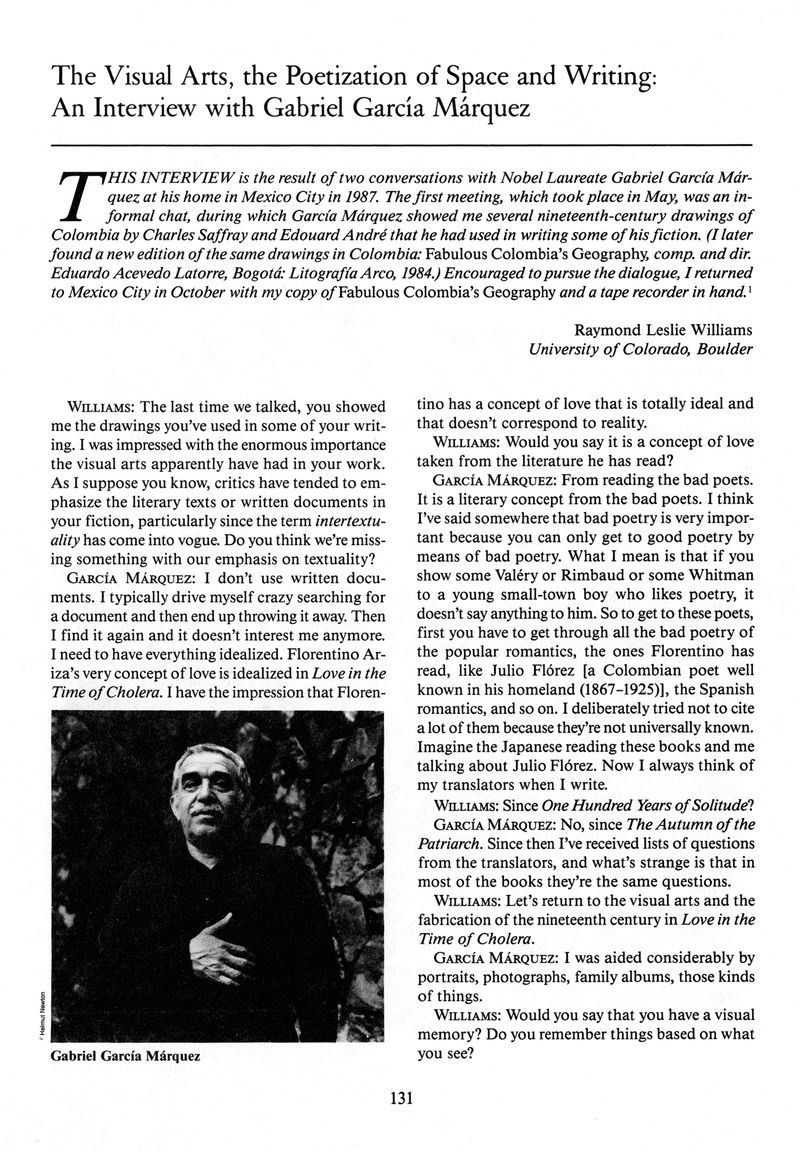No CrossRef data available.
Published online by Cambridge University Press: 23 October 2020

page 139 note 1 The dates of the meetings were 12 May 1987 and 21 October 1987. These two conversations were the fifth and sixth private talks I have had with García Márquez since meeting him in Bogotá in 1975; the October conversation reproduced here represents my first published interview with him. The publication dates of the Spanish originals of the novels we discussed are as follows: One Hundred Years of Solitude, 1967; The Autumn of the Patriarch, 1975; and Love in the Time of Cholera, 1981. I would like to express my gratitude to John Kronik for his encouragement and editorial suggestions and to Germán Vargas of Barranquilla, Colombia, for his helpful efforts over the years to bring me together with his friend García Márquez.
page 140 note 2 The period García Márquez spent in Cartagena writing Love in the Time of Cholera was in the spring and summer of 1984. Since then political and drug-related violence has escalated enormously. García Márquez currently lives in Mexico City, and he mentioned to me in one of the 1987 interviews that he had not recently returned to Colombia, because no one, not even President Virgilio Barco, could give him assurances of his personal safety. The most immediate danger for him would probably be one of the numerous right-wing death squads that have been increasingly active since 1986. He returned to Colombia after receiving the Nobel Prize for Literature in 1982 and regularly during the presidency of Belisario Betancur (1982–86).
page 140 note 3 The severity of the McCarran-Walter Act has been modified since this conversation. In December 1987 Congress set temporary limits on the government's right to deny visas for reasons of national security. A State Department authorization bill provided that no alien could be denied a visa “because of any past, current or expected beliefs which, if engaged in by a United States citizen, would be protected under the Constitution of the United States” (Washing ton Post 11 May 1988). This part of the interview has been included, nevertheless, in order to clarify García Márquez's position on the State Department and the US in recent years.